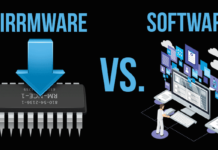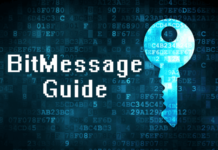Is Wire the safest, most secure instant messenger? That’s what I will discuss in this wire secure messenger review.
If you’re a start-up, group, business or even an individual who needs a more secure Whatsapp alternative, this review may be of help.
Even if you aren’t looking for a Whatsapp alternative, do go through this piece. You’d learn what’s being stolen from you and how to protect it.
Also, the Wire is free. Which means this review isn’t a sales pitch. Let’s get started then?
Wire Secure Messenger Overview
Wire is an E2E encrypted messaging platform founded by some of the Skype co-founders.
It markets itself primarily as a “collaboration” or “team” app. Meaning, more than individual messaging, it’s suited for business or group-needs. Some of its primary features include:
![]()
- End-to-end encrypted messaging and voice/video calls
- Signup using an e-mail (can be temporary) or phone number.
- File sharing
- Pings & self-destructing messages
- Audio and video conferencing.
- Cross-platform support
- Federation add-on available.
In this Wire messenger review, let’s first cover the technicalities and security aspects. These are the factors that should generally matter the most to you. Once done, I’ll then move onto the more common features.
Wire Registration
Wire is a “secure” app but that doesn’t mean it’s “anonymous”.
I say that because during registration, you must share one of the following details:
- Either your phone number
- Or your e-mail ID.
I’d recommend signing up for an anonymous e-mail ID and using that for Wire.
End-to-End Encryption
In almost all my reviews, E2E encryption takes priority if it’s available. In fact, be it e-mail providers, social media networks or instant messengers, E2E encryption is something I actively look for.
Why?
It’s the most secure form of communication known to us at the moment. “End-to-End” means the communication can not be intercepted or monitored by any third-party. Only the two ends (the sender and the receiver) may view the sent content.
I can explain it simply by saying that E2E encryption is a locked safe where you keep your letter. This safe is then transported from you to the receiver. Only you and the receiver have the keys to the locker.
That means, not even Wire messenger, the government, FBI, aliens, or anyone else can access your messages.
And no, there are no known bombs (vulnerabilities) capable of detonating the locker and viewing the contents inside it for now.
New Keys for Each Message
Okay this one is news even to me.
So, Wire sure is E2E encrypted as I just mentioned. However, it uses new keys for each individual message.
This means, in a hypothetical world even if the key to one of your encrypted message is somehow intercepted, it’s specific to that message.
It sure would reveal that individual message but it wouldn’t be able to decrypt any other messages whatsoever.
Open-Source
Another massive advantage or trust-factor with Wire is that it’s open-source. This is in clear contrast to popular messengers like Whatsapp or Facebook messenger.
What’s open-source and why should you care?
In simple words, open-source means the code of the software is public. Anyone can view or audit it.
Because the source code is open and available for anyone to review, it is easier to identify and fix any security vulnerabilities. This increases not just trust but also security, doesn’t it?
Open-source software allows users to see exactly how the software works and what it is doing under the hood. This ensures there are no hidden backdoors or data leaks.
Because the source code is available, users can make custom modifications to the software to suit their specific needs. This can be particularly useful for developers or organizations with unique requirements. Do note that this would require independent hosting and isn’t just a “click & buy” feature.
I also love Open-source software because of the community that gets built around it. These often have a large and active community of users and developers who contribute to the project. This can lead to a more robust and feature-rich software.
Independently Audited
Wire seems to be hell-bent on making you trust the software. It got itself independently audited.
This means, a third-party, not affiliated with Wire checked its code and back-end to ensure nothing fishy was going on.
The audited components were Wire’s Android client, iOS client, Web client and calling encryption.
Obviously, Wire messenger was found to be clean.
Germany and Swiss-Based
Wire is Headquartered in Germany. How this matters?
The country has a long tradition of protecting personal privacy and has some of the strictest data protection laws in the world.
The German Federal Data Protection Act (BDSG) sets out detailed rules for the collection, use, and storage of personal data, and gives individuals the right to control their own data.
In addition, Germany is a member of the European Union (EU), which has strong data protection laws through the General Data Protection Regulation (GDPR).
The GDPR sets out detailed rules for the collection, use, and storage of personal data and gives individuals the right to control their own data.
It primary office is based out of Switzerland. It’s the world’s privacy-hub and not a member of the EU. Also, they’ve got the Swiss bank, says a lot about “privacy”, doesn’t it?
What Information is Logged?
Let’s start with the fact that your messages are NOT STORED. Messages are deleted permanently once they’ve reached the person you’re sending them to.
If the receiver isn’t online, the messages are temporarily stored on Wire servers though. They’re still encrypted and can not be read by Wire or any other third-parties.
Do note that this doesn’t mean no information is logged. Wire does log and store the following information:
- Unencrypted, plain-text names and e-mail/phone numbers of everyone you’ve ever contacted. Fortunately, the list is deleted once you delete your Wire account.
- IP addresses
- Obviously your e-mail and/or phone number (if provided).
Unforatunatly, there isn’t a clear document explaining what data exactly is stored or logged by Wire.
The Primary Wire Features
So far, I was focusing on “Is Wire secure?”. I believe you’ve got the answer. Let’s focus on the actual “messaging” features then?
Encrypted file sharing
![]() Of course, being primarily a “group” and “collaboration” messaging app, Wire does have a file-sharing feature.
Of course, being primarily a “group” and “collaboration” messaging app, Wire does have a file-sharing feature.
It lets you share nearly every file-type, including but not limited to videos, documents, pictures etc.
And yes, whatever files are shared are E2E encrypted as well.
Pings and Self-Deleting Messages
One of these is an unique feature that I’ve not seen with any other popular messenger. The other isn’t unique but is pretty desirable.
“Pings” are a button you click which gets you attention, as simple as that. On your messaging page, you’d see the ping button for each user. If you click on it, your message is moved to the top and they’re notified of it.
The self-deleting messages are more common. You send a message and attach a timer to it. The message is deleted after the set time, after it’s read. (Note that the timer only starts after the message is viewed.)
Group Conferences (and moderators)
Being a group/team messenger, Wire obviously supports group calls.
The Wire audio conferences allow up to 100 participants while the video conferences have a limit of 50.
The conferences do have this “screen sharing” feature which is a neat addition, isn’t it?
You can also have moderators for your conferences. These mods can mute, soft mute, kick, or disable screen sharing from participants.
Compatibility
Wire is a cross-platform app. Meaning, it supports nearly all the devices and OS out there and they can communicate with each other simultaneously.
For now, you can use Wire on:
- Your browser, without downloading anything.
- On your computer by downloading the app for Windows, macOS and Linux.
- On your phones, both for iOS and Android.
Wire Pricing
Like all good reviews, I can not sign off this Wire messenger review without discussing its pricing, can I?
So, Wire is free. I mean there is a free version that solves most of your personal and individual needs.
If you’re a company or larger group though, you must pay. There are 3 Wire plans:
- Wire Basic: It’s free, allows team management and up to 5 users.
- Enterprise: $7.65
- Govt: The pricing for this isn’t publicly disclosed.
![]()
Multiple Deployment Methods
Where your Wire messenger is deployed can be controlled by you.
By default, Wire Messenger is hosted and managed by the Wire team and users can access it from any device with an internet connection. There is no need to install or maintain any additional software or hardware.
However, Wire does offer an on-premises deployment option for businesses that want to host the app on their own servers. This option allows companies to have full control over their data and to meet any additional security or compliance requirements they may have.
To use the on-premises deployment option, businesses will need to purchase a license from Wire and set up the app on their own servers. Wire provides documentation and support to help businesses with the setup and deployment process.
Wire Messenger vs. Whatsapp
I’m sure you’ve been wondering how Wire compares against Whatsapp! Well, here’s the answer:
- Wire is open source, Whatsapp isn’t. Hence, you can clearly trust Wire a lot more than you should Whatsapp.
- Wire is owned by Wire Swiss GmbH. It’s way more trustworthy (in terms of privacy and security) than Whatsapp which is owned by Meta (formerly Facebook). Facebook has been part of multiple controversial privacy lawsuits and has been found guilty.
- Wire has been audited independently, Facebook hasn’t been.
- Whatsapp is the better option for individual messaging while Wire focuses more on corporate and group collaborations.
- You can sign up at Wire using a discardable e-mail, Whatsapp can be used only after sharing your number.
- Screen sharing is a major feature that Wire offers and Whatsapp lacks.
All in all, if you ask me, I’d say Wire is the clear winner in terms of privacy & security.
Frequently Asked Questions (FAQ)
Before I take your leave, let me answer some of the most asked questions around the Wire Messenger?
Is Wire messenger safe?
Yes.
Is the Wire app anonymous?
No. It’s 0% anonymous if you use a phone number to sign up. It’s more anonymous if you use a temporary e-mail instead of the phone number for signing up.
How can I be anonymous on the Wire messenger?
It’s possible to use Wire with 100% anonymity. The two major points of your identity leak that Wire collects are 1. Your IP address 2. Your email/phone.
Hence, use a VPN services while downloading and using Wire. I’d recommend NordVPN. It’s the best in my experience. Of course, use a temporary e-mail ID as well.
| NordVPN | Surfshark VPN | AtlasVPN | ExpressVPN | TorGuard VPN |
|---|---|---|---|---|
1. NordVPN | 2. SurfShark VPN | 3. AtlasVPN | 4. ExpressVPN | 5. TorGuard |
Is Wire safer than Whatsapp?
Yes. Wire is safer than Whatsapp. For a list of all the reasons, refer to the Whatsapp vs. Wire comparison above.
Final Words
Hey, the world’s top whistleblower and cryptography expert- Edward Snowden vouches for Wire.
![]()
I’m pretty sure I’m not qualified enough to counter his claims. Furthermore, as this review probably explained, security sure isn’t an issue with Wire.
Even if you’re an individual, Wire more than solves your everyday communication problems.
Obviously, its move to the U.S and corporate-focus could be changed. But, as a regular user, I’ll say it’s clearly better alternative than most other similar services out there.



















